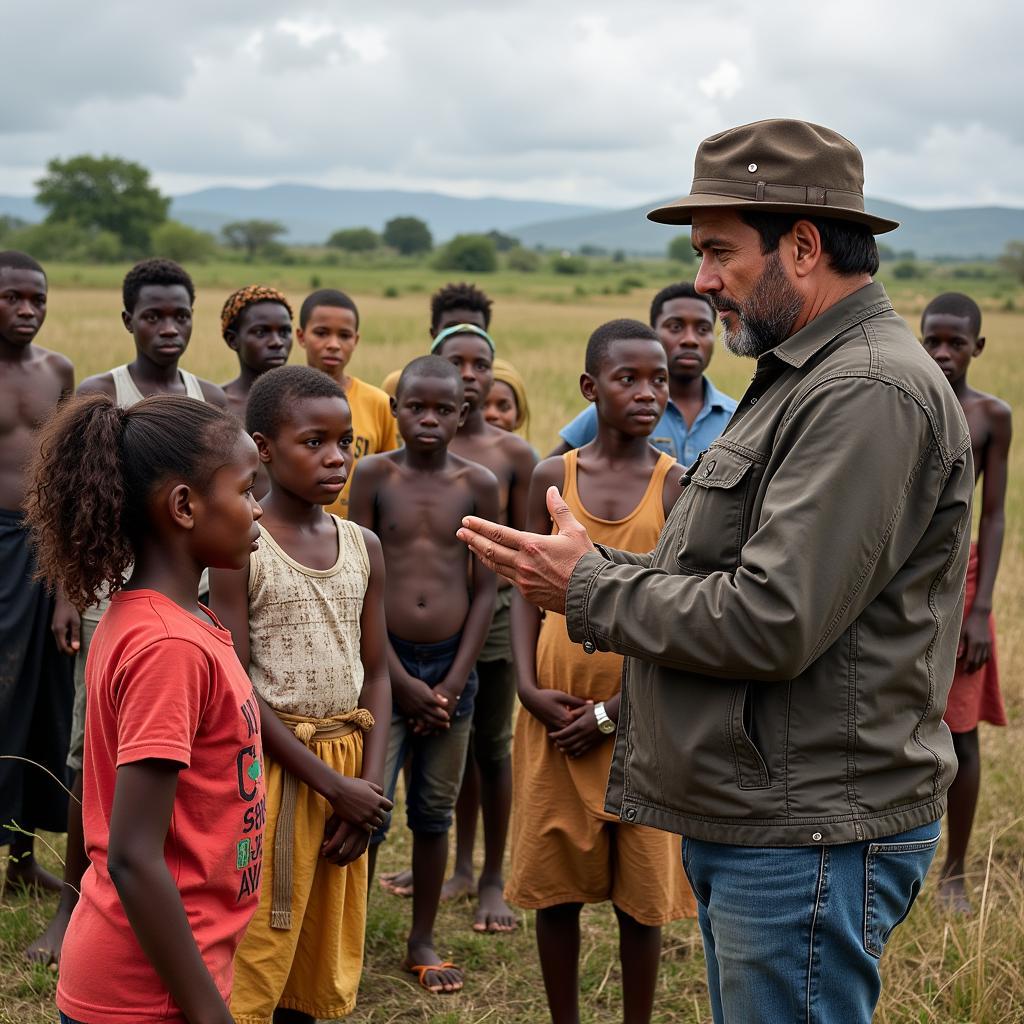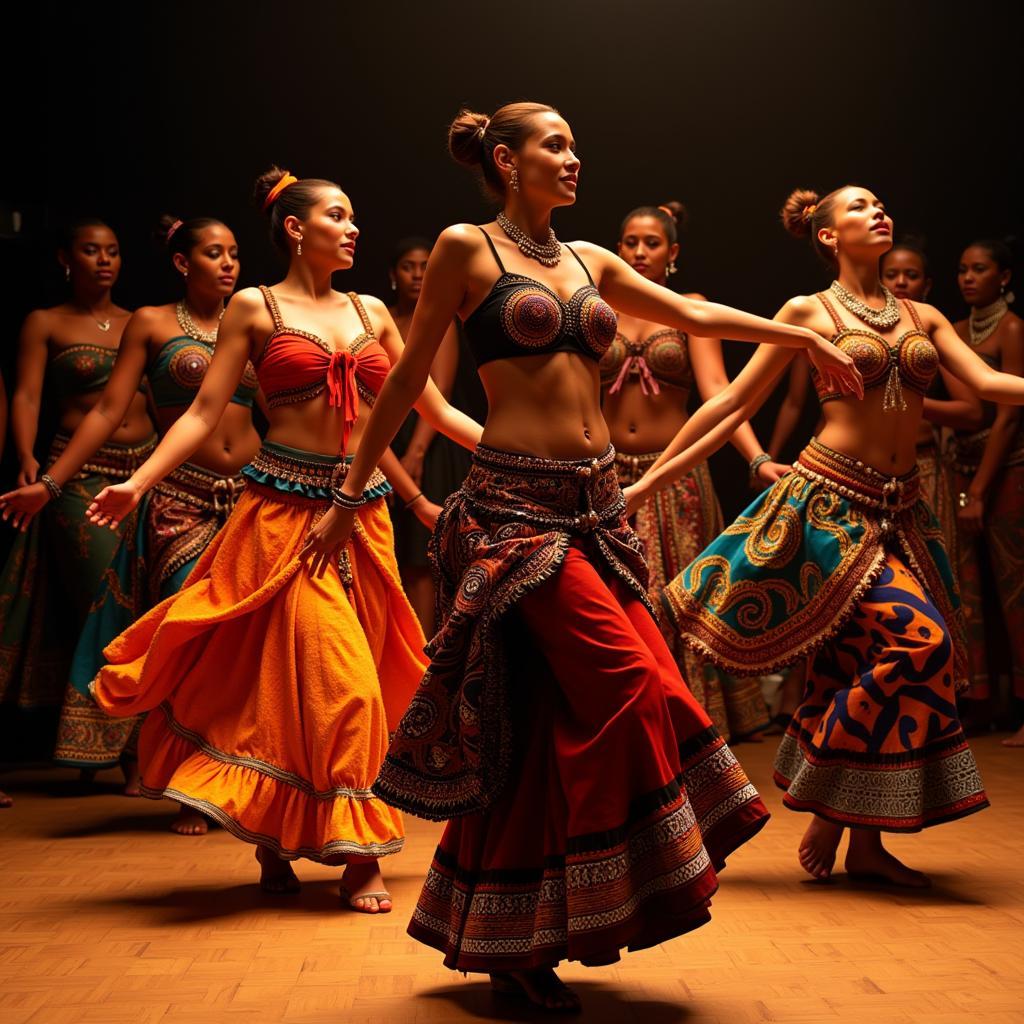A Journey Through Africa’s Diverse Ethnic Groups
Africa, a continent renowned for its breathtaking landscapes and abundant wildlife, is also home to a tapestry of cultures woven by its diverse ethnic groups. With over 3,000 distinct groups, each with unique languages, traditions, and artistic expressions, Africa’s cultural landscape is as rich and varied as its natural wonders. Understanding African Ethnic Groups is key to appreciating the continent’s vibrant history and social fabric.
The Complexity of Defining “African Ethnic Groups”
While the term “ethnic group” is widely used, it’s essential to recognize its fluidity, especially within the African context. Often, shared language, cultural practices, and ancestral lineage form the basis of these groups. However, historical interactions, migrations, and intermarriages have resulted in blurred lines and overlapping identities.
It’s also crucial to avoid viewing these groups as static or homogenous. Within each “ethnic group,” there’s often significant internal diversity with sub-groups, clans, and lineages, each contributing to the richness of the overall cultural identity.
Major African Ethnic Groups and Their Heritage
While it’s impossible to encapsulate the entirety of Africa’s ethnic diversity in a single article, exploring some of the major groups offers a glimpse into this multifaceted cultural landscape:
1. The Yoruba: Guardians of Artistic Legacy
Concentrated in West Africa, particularly Nigeria and Benin, the Yoruba people are renowned for their rich artistic traditions. Their sculptures, often depicting deities and ancestors, are celebrated globally for their craftsmanship and spiritual depth. The Yoruba language, with its tonal variations, is spoken by millions and plays a significant role in preserving their oral history and cultural narratives.
2. The Zulu: Warriors and Custodians of Tradition
The Zulu people, primarily residing in South Africa, are recognized for their strong warrior traditions and intricate beadwork. Their history is marked by legendary figures like Shaka Zulu, who unified the Zulu Kingdom in the 19th century. Today, the Zulu people continue to uphold their cultural heritage through music, dance forms like the energetic Indlamu, and the preservation of their language, isiZulu.
3. The Maasai: Nomadic Herdsmen and Cultural Icons
Known for their distinctive red attire and nomadic lifestyle, the Maasai people of East Africa, mainly Kenya and Tanzania, are emblematic of the continent’s cultural diversity. Their deep connection to their cattle and the land is central to their identity. Maasai ceremonies, such as the Eunoto (warrior initiation), offer a window into their ancient traditions.
4. The Igbo: Entrepreneurs and Masters of Visual Arts
Predominantly found in southeastern Nigeria, the Igbo people are celebrated for their entrepreneurial spirit and intricate mask-making traditions. The Mmanwu masks, used in various ceremonies, showcase the Igbo’s artistic prowess and their belief in the interconnectedness of the spiritual and physical realms.
5. The Berber: Guardians of Ancient North Africa
Spanning across North Africa, from Morocco to Egypt, the Berber people represent a rich tapestry of cultures and languages. Their history predates the arrival of Arabs in North Africa, and their influence is evident in the region’s music, cuisine, and architecture. The Berber language family, Tamazight, is experiencing a revival, highlighting the group’s enduring cultural identity.
The Enduring Impact of African Ethnic Groups
It’s impossible to overstate the impact of Africa’s ethnic diversity on the world. From influencing artistic movements and musical genres to shaping global culinary trends, the cultural legacy of these groups extends far beyond the continent’s borders.
Understanding and appreciating this diversity is crucial, not only for celebrating Africa’s rich heritage but also for fostering cross-cultural understanding and appreciation on a global scale.
FAQs About African Ethnic Groups
1. What is the largest ethnic group in Africa?
The Yoruba, with a population exceeding 40 million, are considered the largest ethnic group in Africa.
2. Do all African ethnic groups speak the same language?
No, Africa is incredibly linguistically diverse, with over 2,000 languages spoken across the continent.
3. What are some common cultural practices among African ethnic groups?
While diverse, many African cultures place strong emphasis on community, respect for elders, oral traditions, and a deep connection to the land.
4. Are there resources available for further learning about specific African ethnic groups?
Yes, numerous online resources, books, and academic institutions provide in-depth information about Africa’s diverse cultures.
5. Why is it important to learn about African ethnic groups?
Understanding African ethnic groups challenges stereotypes, promotes cultural appreciation, and provides a more nuanced understanding of this complex and fascinating continent.
Explore Further
For those interested in delving deeper into specific aspects of African culture, consider these resources on Omenka Mag:
- African hairstyles pictures 2018 offers a glimpse into the diverse ways African hair is styled, reflecting cultural identity and creativity.
- African birth signs provide a unique perspective on astrology and belief systems within certain African cultures.
- African American family crest symbols explores the significance of symbols and their connection to heritage and identity.
Need More Information?
Have questions or need assistance finding more information about African ethnic groups? Don’t hesitate to reach out. Contact us at:
- Phone: +255768904061
- Email: [email protected]
- Address: Mbarali DC Mawindi, Kangaga, Tanzania
Our dedicated team is available 24/7 to assist you. Let’s continue exploring the beauty and diversity of Africa’s rich cultural tapestry together.


